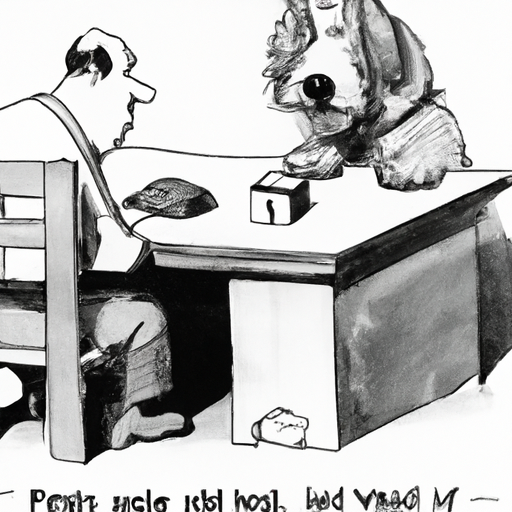As a pet caregiver, there may be times when you notice that your dog’s mouth is bleeding. This can be a scary sight, and it’s essential to understand what might cause this and what you can do to help your beloved pet.
1. Common Causes of Bleeding in a Dog’s Mouth
There are several reasons why your dog’s mouth might be bleeding. Here are a few:
- Physical Trauma: Dogs love to explore their world, often with their mouth. This can lead to injuries, like cuts or scrapes, leading to bleeding.
- Dental Problems: Dogs, like humans, can suffer from gum disease or tooth decay, both of which can cause bleeding.
- Foreign Objects: Dogs are notorious for chewing on things they shouldn’t. If they bite into something sharp, it could cause their mouth to bleed.
2. What to Do If Your Dog’s Mouth Is Bleeding
If you notice blood in your dog’s mouth, it’s important to act quickly. Here’s what to do:
- Examine the Mouth: First, if your dog will let you, take a look inside their mouth. This might help you figure out where the blood is coming from.
- Contact Your Vet: If the bleeding doesn’t stop or if your dog seems in pain, contact your vet immediately.
- Follow Vet’s Instructions: Your vet will likely give you advice on what to do until you can get your dog in for an appointment.
3. Preventing Mouth Bleeding in Dogs
While it’s not always possible to prevent injuries, there are steps you can take to reduce the risk of mouth bleeding in your dog:
- Regular Dental Check-ups: Routine dental care can prevent many dental issues that cause bleeding.
- Safe Chew Toys: Provide your dog with safe, appropriate chew toys to discourage them from chewing on dangerous items.
- Regular Examinations: Regularly examine your dog’s mouth for any signs of injury, foreign objects, or dental issues.
4. When to Seek Emergency Care
Sometimes, a bleeding mouth can be a sign of a more serious problem. Here are some signs that you should seek emergency care:
- Excessive Bleeding: If the bleeding is heavy or doesn’t stop after a few minutes, seek immediate care.
- Pain: If your dog seems in pain, don’t wait. Pain is a sign that something is seriously wrong.
- Difficulty Breathing: If your dog is having trouble breathing, this could indicate a serious issue that needs immediate attention.
5. FAQs
Here are some frequently asked questions about dogs and mouth bleeding.
Q1: Can I use human toothpaste to clean my dog’s teeth?
A: No, human toothpaste can be harmful to dogs. Use a toothpaste specifically designed for dogs.
Q2: How often should I check my dog’s mouth?
A: It’s a good idea to check your dog’s mouth at least once a week.
Q3: My dog’s mouth is bleeding, but they seem fine otherwise. Should I still call the vet?
A: Yes, any bleeding should be checked out by a vet to rule out serious issues.
Q4: What can I give my dog to chew that’s safe?
A: There are many safe chew toys and treats available. Always supervise your dog while they’re chewing, and avoid items with sharp edges or small parts that could be swallowed.
Remember, when it comes to your dog’s health, it’s always better to be safe than sorry. So, if your dog’s mouth is bleeding, don’t hesitate to reach out to your vet.



